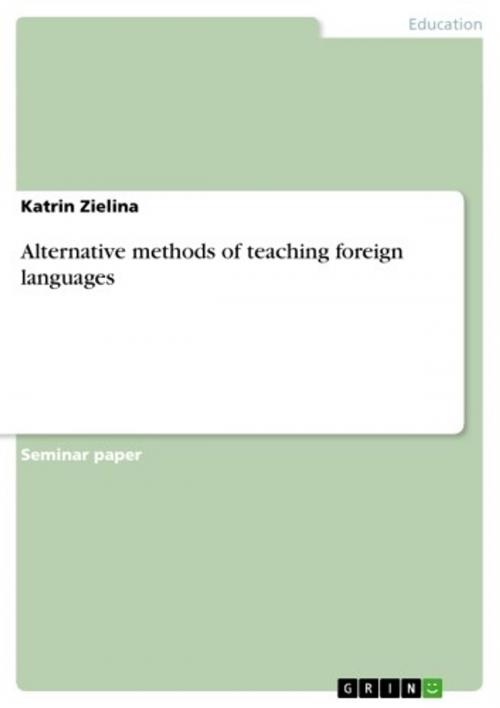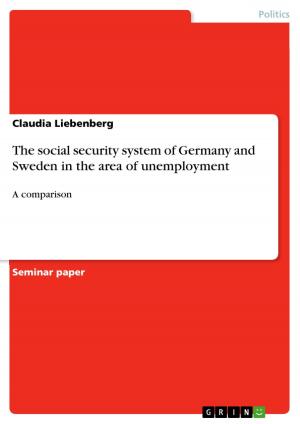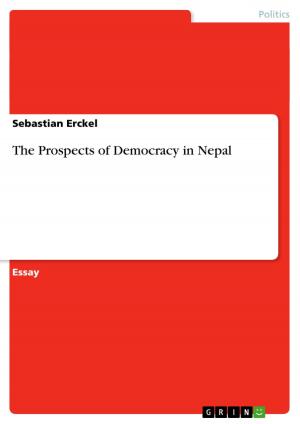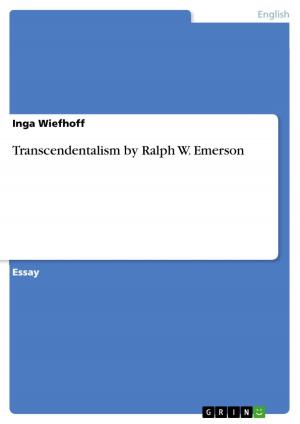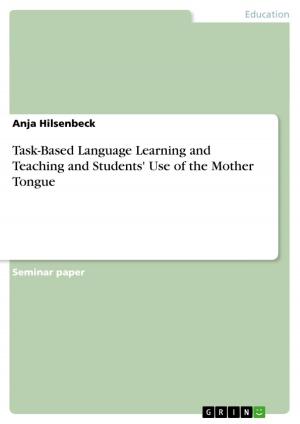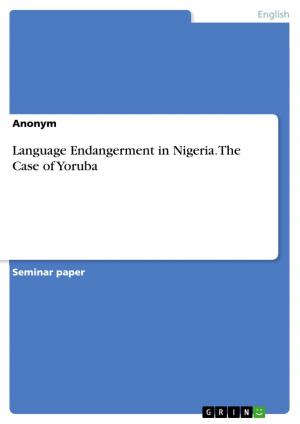Alternative methods of teaching foreign languages
Nonfiction, Reference & Language, Study Aids, ESL, Foreign Languages| Author: | Katrin Zielina | ISBN: | 9783638189132 |
| Publisher: | GRIN Publishing | Publication: | May 1, 2003 |
| Imprint: | GRIN Publishing | Language: | English |
| Author: | Katrin Zielina |
| ISBN: | 9783638189132 |
| Publisher: | GRIN Publishing |
| Publication: | May 1, 2003 |
| Imprint: | GRIN Publishing |
| Language: | English |
Seminar paper from the year 2002 in the subject English - Pedagogy, Didactics, Literature Studies, grade: 2- (B-), University of Frankfurt (Main) (Institute for England und American Studies), course: Old and new methods of teaching foreign languages, 7 entries in the bibliography, language: English, abstract: Education is probably the most important aspect in our times. Without education a state would have no medical service, no computer specialists, no politics and demo- cracy, no business, no economy, short a state would not work at all. Education is the key for individual chances and success in life, and the driving force for developments in society. Prosperity derives from education. Culture is a result of education, just as interest in politics and most important perspectives for later occu- pations. Politics concerning education cannot work where not enough attention is paid to achievements in school, where it seems to be not important what students learn in contrast to students in other states. The recent PISA-study showed unfortunately how little attention was paid to edu- cation in Germany in the last decades. It is not possible to find a convincing answer to where the problem was, may it be the German school-system, the instruction of new teachers at universities, teachers who are no longer motivated after having reached the state of an official, parents who do not seem to care about their children's abilities in reading and writing. In fact, a change in our school-system is Ger- many's deepest need at the moment to improve pupils' achievements. Therefore alternative methods will probably gain more and more interest in our school- and teaching-system. I will try to introduce, describe and discuss some of these methods. I will show up their difficulties, risks and also possible chances. In the end I will try to decide if those approaches will find their ways sooner or later or if they will remain utopian.
Seminar paper from the year 2002 in the subject English - Pedagogy, Didactics, Literature Studies, grade: 2- (B-), University of Frankfurt (Main) (Institute for England und American Studies), course: Old and new methods of teaching foreign languages, 7 entries in the bibliography, language: English, abstract: Education is probably the most important aspect in our times. Without education a state would have no medical service, no computer specialists, no politics and demo- cracy, no business, no economy, short a state would not work at all. Education is the key for individual chances and success in life, and the driving force for developments in society. Prosperity derives from education. Culture is a result of education, just as interest in politics and most important perspectives for later occu- pations. Politics concerning education cannot work where not enough attention is paid to achievements in school, where it seems to be not important what students learn in contrast to students in other states. The recent PISA-study showed unfortunately how little attention was paid to edu- cation in Germany in the last decades. It is not possible to find a convincing answer to where the problem was, may it be the German school-system, the instruction of new teachers at universities, teachers who are no longer motivated after having reached the state of an official, parents who do not seem to care about their children's abilities in reading and writing. In fact, a change in our school-system is Ger- many's deepest need at the moment to improve pupils' achievements. Therefore alternative methods will probably gain more and more interest in our school- and teaching-system. I will try to introduce, describe and discuss some of these methods. I will show up their difficulties, risks and also possible chances. In the end I will try to decide if those approaches will find their ways sooner or later or if they will remain utopian.
